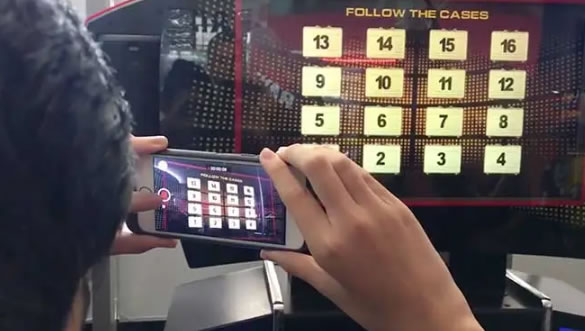The Psychology Behind Deal or No Deal: Why You Shouldn’t Trust Your Gut

The Thrill of Risk: Why Deal or No Deal Is So Addictive
The Fundamental Nature of the Game
At its core, Deal or No Deal is a game of risk and reward. Players must repeatedly decide whether to accept a deal from the mysterious banker or continue opening briefcases in hopes of winning a larger sum. The stakes are high, and each decision can have massive implications for the player’s outcome. This structure inherently causes a psychological battle, making Deal or No Deal more than just a game of luck.
The Role of Uncertainty and Intuition
One of the major psychological hooks of Deal or No Deal is uncertainty. The unpredictability of which briefcase holds the highest value creates tension, and the more uncertain the outcome, the more players are inclined to trust their intuition. This instinctive decision-making feels natural, but it can be misleading. Human intuition is often influenced by past experiences, biases, and emotions, which may not align with the game’s actual probabilities.
The Illusion of Control: Why Your Gut Can Be a Dangerous Guide
Cognitive Biases and Faulty Decision-Making
Humans are hardwired to seek patterns in the world around us. While this can be beneficial in many situations, it can also cause us to make faulty decisions in games like Deal or No Deal, where the outcome is heavily influenced by chance. When a player faces a choice, such as whether to accept the banker’s offer, they may convince themselves that they can predict the next outcome based on the briefcases already opened. This false sense of control can mislead them into making decisions that are not statistically advantageous.
The Anchoring Effect: How the First Offer Can Skew Your Judgment
One cognitive bias that plays a significant role in Deal or No Deal is the anchoring effect. This occurs when the first piece of information you receive influences your subsequent decisions. For example, if the banker’s first offer is higher than expected, players might anchor their decision around this initial amount and feel compelled to reject any future offers that seem lower. Unfortunately, this does not account for the fact that the game is based on randomness, and the banker’s offers are designed to exploit psychological tendencies, not to reflect the true value of the remaining cases.
The Role of the Banker: Psychological Manipulation
How the Banker’s Offers Play on Emotions
The banker’s role in Deal or No Deal is not just to provide offers; it’s to manipulate emotions. By making offers that seem tempting but are ultimately lower than what the player could win, the banker forces players to confront their fears of losing. This is where psychological pressure comes into play. The fear of leaving with nothing can overpower the desire to hold out for a larger prize, even if the odds are against the player.
Loss Aversion and Its Influence on Decisions
A key concept in decision-making psychology is loss aversion – the idea that the pain of losing is psychologically more powerful than the pleasure of gaining. In Deal or No Deal, players are often reluctant to accept the banker’s deal because they fear the potential loss of a bigger prize. This bias can cloud their judgment, leading them to make riskier decisions that may not be in their best interest. The more a player values the possibility of a larger win, the more difficult it becomes to make rational decisions.
Decision Fatigue: Why Your Mind Deteriorates After Several Rounds
The Mental Toll of Continuous Decision-Making
As the game progresses, players must make more and more decisions, each one potentially more difficult than the last. This repetitive decision-making can lead to decision fatigue, where the ability to make sound judgments becomes compromised. By the time players reach the final rounds, they may feel mentally exhausted, leading them to make choices based on emotion rather than careful analysis. This is a major reason why many players ultimately accept the banker’s offer, even when it’s not the optimal choice.
Overcoming Decision Fatigue: Staying Logical Under Pressure
The key to overcoming decision fatigue is to recognize its presence and consciously attempt to stay rational. Understanding the probabilities involved in Deal or No Deal and resisting the urge to act on gut feelings can help players avoid making decisions that are more emotionally driven than logical. Remember, the game is largely based on luck, and while it’s tempting to follow your instincts, those instincts are often influenced by emotional stress and not grounded in reality.
Conclusion: The Psychology of Deal or No Deal – Trust Logic, Not Your Gut
Deal or No Deal is a game that goes beyond luck and requires players to navigate a complex landscape of psychological traps. From cognitive biases like the anchoring effect to emotional manipulations by the banker, the game plays on our deepest instincts and fears. While trusting your gut may feel like the right approach, the psychology behind the game shows that this can often lead to poor decisions.
Instead of relying on intuition, players can improve their chances by focusing on the game’s logic. Understanding the odds, recognizing cognitive biases, and acknowledging the emotional manipulation at play can help players make more informed, rational decisions. In Deal or No Deal, the key to success isn’t a gut feeling – it’s a clear mind and an understanding of the game’s psychological dynamics.
If you have other questions, you can read the FAQ.